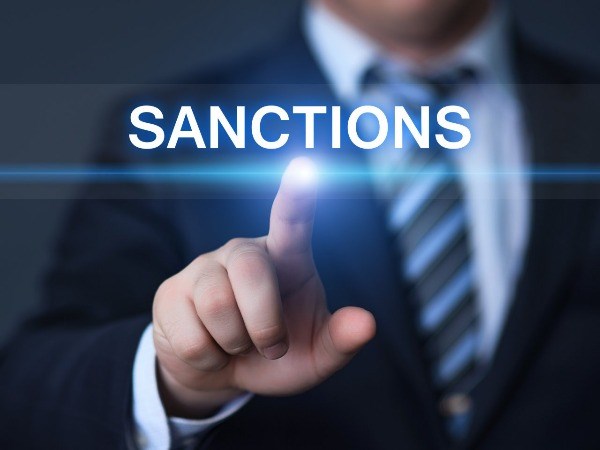Threat of new US sanctions sends Russian government bank shares tumbling
Russian government bank shares continue to plummet on the Moscow Exchange due to the threat of new US sanctions, which at first seemed unlikely, but are becoming more real every day.
After US Senator Chris Van Hollen said that the bipartisan sanctions bill will target the Russian banking sector, Sberbank and VTB Bank’s share prices began to drop at an accelerating rate.
At the end of trading on Thursday, Sberbank’s shares had lost 4.84%, closing at a price of 178.71 rubles, a low since August last year.
VTB Bank’s shares fell 3.74%, reaching a price the market has not seen since the 2014 crisis – 4.131 kopeks.
Since the start of April, when sanctions cut Rusal off from the world market, Sberbank has lost 30% of its capitalization, leaving shareholders 1.65 trillion rubles poorer. Compared to the February peaks, the bank’s market value has fallen by 2.63 trillion rubles, i.e. 35%. VTB Bank has dropped by 23%, i.e. 160 billion rubles.
The sanctions against Russian government banks are part of two key sanctions bills put forward in US Congress this year.
The first, put forward by Van Hollen himself and already supported by 12 other senators (S.2323), proposes to ban Russian banks from having correspondent accounts in the US, which is tantamount to cutting them off from dollar transactions.
Van Hollen’s idea is that the sanctions should be introduced not by President Donald Trump, but by the head of national intelligence, if he receives information on new Russian interference in US elections.
The second bill (S.3336), which was put forward by a group of six lawmakers, headed by senators Lindsey Graham and Bob Menendez, proposes to freeze the assets of all Russian government banks in the US, and ban American legal entities from carrying out any operations with them.
According to the bill, these sanctions will be introduced by Trump, who can choose one or several of the six government banks – Sberbank, VTB Bank, Gazprombank, Rosselkhozbank, Promsvyazbank, Vnesheconombank and the Bank of Moscow.
The plan enjoys bipartisan support, but no hearings have been scheduled for it yet.
